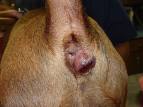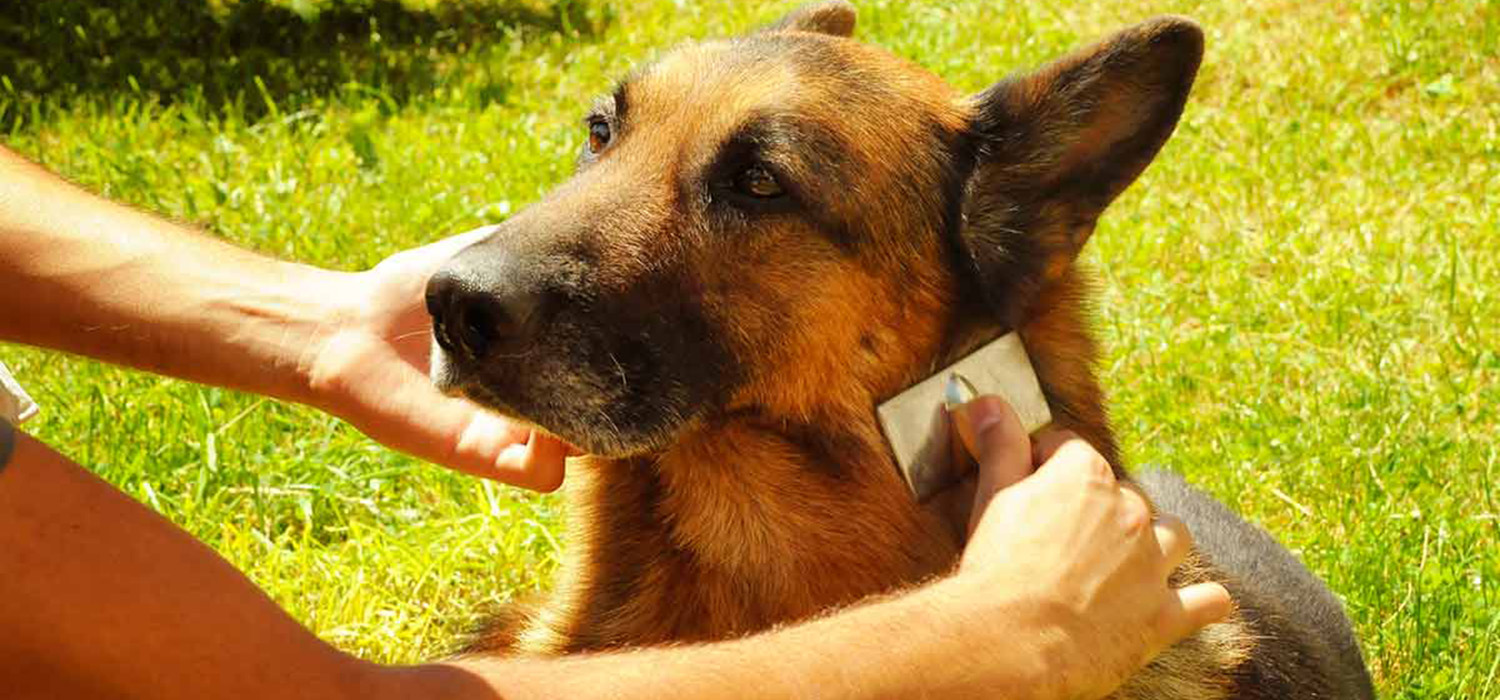
This can be the unpleasant part of owning a dog – having to clean out the anal glands. Your dog has two small internal glands at either side of the rectal opening. These two glands, when working properly, empty out every time the dog defecates. This is their marker or individual scent for other dogs. That is why dogs greet each other by sniffing the anal area.
How Do The Anal Glands Work?
Each of the anal glands produce a smelly brownish fluid which is then secreted when the dog empties his/her bowels. Every dog’s fluid has a unique odor which identifies them individually and allows them to mark their territory. Dogs recognise each other from the smell of their anal glands.
When the glands are working properly they receive enough pressure to release some of this fluid as the dog defecates. This motion allows the glands to be consistently expressing themselves and remaining healthy.
Anal Gland Problems
A lot of dogs, in particular smaller dogs, have problems with their anal glands being expressed. If they are not expressed properly the fluid inside the glands builds up and gets impacted which clogs the duct. If bacteria enter this can then cause infection. This can then lead to an abscess and be very uncomfortable for the dog.
There may be some indication that difficulty in expressing glands can be caused through a poor diet with too much vegetable protein or cereal fillers. This produces softer stools and these do not put the pressure required on the anal glands in order to assist them in expressing the fluid. Dogs fed a high quality diet will produce firmer stools which will in turn assist with the anal glands expressing properly.
What Are The Signs Of Anal Gland Problems?
Some of the signs which may indicate that your dog is having problems expressing his/her anal glands can be:-
- scooting where the dog drags his backside long the ground with his/her tail in the air – this can cause damage to the anus;
- the dog starts chewing around his tail and anal area;
- if the dog whimpers or cries while he/she is toileting;
- a strong nasty smell coming his back end.
How Do I Prevent And Treat Anal Gland Problems?
The best treatment for anal glands is to have them checked regularly by the vet and, if necessary, have them squeezed out. It is a very smelly procedure and one that you would probably prefer not to do yourself. Also, if not done carefully you can damage the glands.
Changing your dog’s diet to high fibre can also help.


